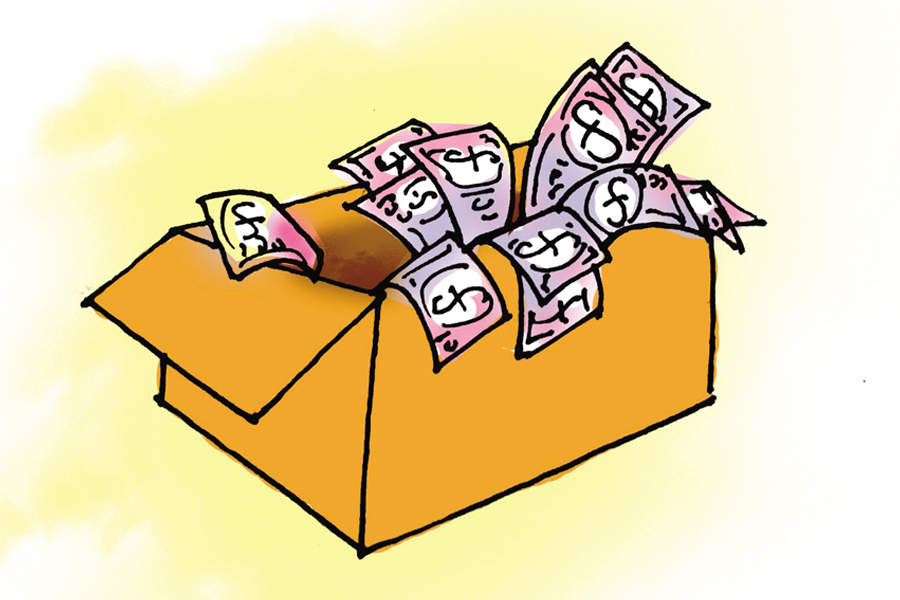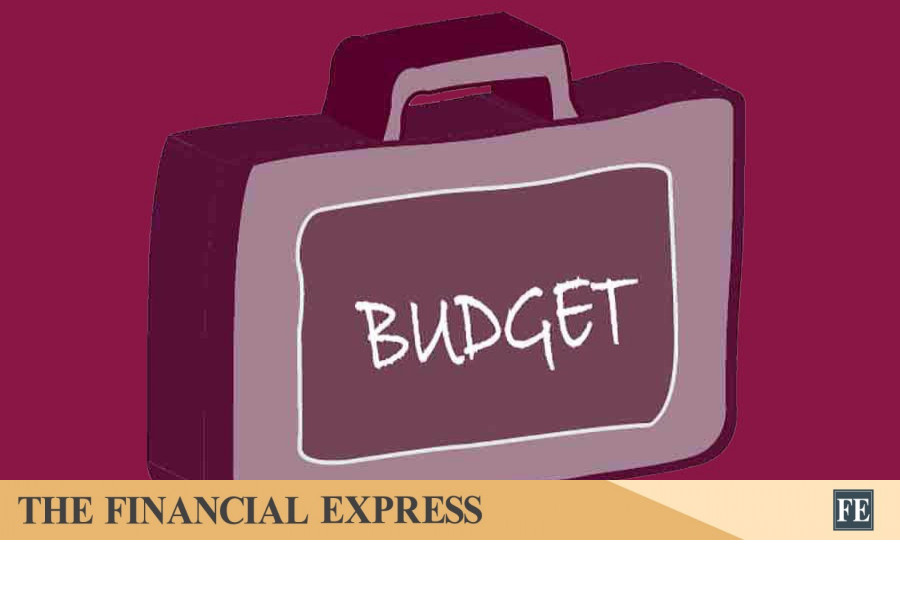Saif
Senior Member
- Joined
- Jan 24, 2024
- Messages
- 17,262
- Likes
- 8,334
- Nation

- Residence

- Axis Group

Contractionary fiscal policy for private sector, not for government, says BNP’s Mintoo
bdnews24.com
Published :
Jun 21, 2025 21:55
Updated :
Jun 21, 2025 21:55

Abdul Awal Mintoo, business leader and vice-chairman of the opposition BNP, has criticised the government for applying austerity measures selectively in the proposed 2025-26 national budget.
Speaking at a discussion titled “Budget Debate: Context-Appendix” organised by the Bangladesh Economic Association (BEA) at the SIRDAP auditorium in Dhaka on Saturday, he said the austerity policies were designed only for the private sector, while the government exempted itself.
“To curb inflation, we’ve raised interest rates, fair enough,” he said. “We’ve also slashed the size of the budget by 7 to 8 billion under a tight fiscal policy.
“But what’s clear is that this contractionary monetary and fiscal policy is targeted solely at the private sector.”
Mintoo's remarks were sharply critical of what he sees as a dual standard in the government’s economic approach--tightening the belt for businesses while continuing unrestrained spending in public institutions.
He said: “In the past one and a half years, Bangladesh has received a total of Tk 3 trillion in bank deposits. The government has taken Tk 2.70 trillion from it. So I don't see a tight fiscal policy for them.”
He advised the government to take all aspects into consideration and adopt a policy after judgement and analysis.
Although the interim government has talked about reforms in several areas, Mintoo says they are not evident.
Pointing out that the proposed budget also does not show any reforms to the identified problems of the economy, he said: “On one hand, economic growth is low, on the other hand, inflation is high.
“To get out of this situation, some reforms could have been made in this budget. But I haven't seen that.”
On Jun 2, Finance Advisor Salehuddin Ahmed presented a budget of Tk 7.9 trillion for the new fiscal year.
Although the overall budget has been reduced, most of the reduction has been done in the development sector, which directly benefits the citizens.
A notable rise is seen in non-development or operating expenditure. For the upcoming fiscal year, operating expenditure has increased by Tk 283.46 billion to Tk 5,353.17 billion.
In comparison, the outgoing 2024-25 budget had set operating expenditure at Tk 569.71 billion, which was later revised down to Tk 560 billion.
The proposed budget for the upcoming fiscal year estimates a deficit of Tk 2.26 trillion, of which Tk 1.26 trillion, which is equivalent to 2 percent of GDP, will be sourced internally.
Among these internal sources, the government plans to borrow Tk 140 billion from the banking sector, representing 1.67 percent of GDP.
In addition, it aims to raise Tk 125 billion from savings certificates and Tk 210 billion from non-bank financial institutions.
ADVISOR SEES “NATIONAL CONSENSUS” ON CORRUPTION
The chief guest of the discussion meeting, Muhammad Fouzul Kabir Khan, shared his experience after taking over as the interim government’s advisor on power, energy, and mineral resources.
He said, “I’ve seen a national consensus on corruption. No one is exempt. Politicians, bureaucrats, professors, everyone is involved.”
Giving an example, he said: “There was a report in Prothom Alo about the Bridges Division, which falls under one of the ministries I oversee.
“They built buildings for the rehabilitation of those who have been affected by a project, but later discovered some areas had been left out.
“So as a solution, they decided to distribute it among government officials. But there’s already a separate ministry for that, the Ministry of Housing and Public Works.
“It was unimaginable that even cabinet secretaries and university professors were taking bribes.”
Regarding lobbying, he said: “Politicians still meet with me, but none of them want corruption to end. Rather, they want to be complicit in it themselves.
“They say things like, ‘we couldn’t do business during the fascist era, so now it’s our turn'.”
In contrast, regarding the government’s efforts, he said: “We’re trying to introduce competition in the economy. Wherever there’s business, there should be competition. We’ve opened everything up.”
He expressed hopes of inflation declining by July or August.
bdnews24.com
Published :
Jun 21, 2025 21:55
Updated :
Jun 21, 2025 21:55
Abdul Awal Mintoo, business leader and vice-chairman of the opposition BNP, has criticised the government for applying austerity measures selectively in the proposed 2025-26 national budget.
Speaking at a discussion titled “Budget Debate: Context-Appendix” organised by the Bangladesh Economic Association (BEA) at the SIRDAP auditorium in Dhaka on Saturday, he said the austerity policies were designed only for the private sector, while the government exempted itself.
“To curb inflation, we’ve raised interest rates, fair enough,” he said. “We’ve also slashed the size of the budget by 7 to 8 billion under a tight fiscal policy.
“But what’s clear is that this contractionary monetary and fiscal policy is targeted solely at the private sector.”
Mintoo's remarks were sharply critical of what he sees as a dual standard in the government’s economic approach--tightening the belt for businesses while continuing unrestrained spending in public institutions.
He said: “In the past one and a half years, Bangladesh has received a total of Tk 3 trillion in bank deposits. The government has taken Tk 2.70 trillion from it. So I don't see a tight fiscal policy for them.”
He advised the government to take all aspects into consideration and adopt a policy after judgement and analysis.
Although the interim government has talked about reforms in several areas, Mintoo says they are not evident.
Pointing out that the proposed budget also does not show any reforms to the identified problems of the economy, he said: “On one hand, economic growth is low, on the other hand, inflation is high.
“To get out of this situation, some reforms could have been made in this budget. But I haven't seen that.”
On Jun 2, Finance Advisor Salehuddin Ahmed presented a budget of Tk 7.9 trillion for the new fiscal year.
Although the overall budget has been reduced, most of the reduction has been done in the development sector, which directly benefits the citizens.
A notable rise is seen in non-development or operating expenditure. For the upcoming fiscal year, operating expenditure has increased by Tk 283.46 billion to Tk 5,353.17 billion.
In comparison, the outgoing 2024-25 budget had set operating expenditure at Tk 569.71 billion, which was later revised down to Tk 560 billion.
The proposed budget for the upcoming fiscal year estimates a deficit of Tk 2.26 trillion, of which Tk 1.26 trillion, which is equivalent to 2 percent of GDP, will be sourced internally.
Among these internal sources, the government plans to borrow Tk 140 billion from the banking sector, representing 1.67 percent of GDP.
In addition, it aims to raise Tk 125 billion from savings certificates and Tk 210 billion from non-bank financial institutions.
ADVISOR SEES “NATIONAL CONSENSUS” ON CORRUPTION
The chief guest of the discussion meeting, Muhammad Fouzul Kabir Khan, shared his experience after taking over as the interim government’s advisor on power, energy, and mineral resources.
He said, “I’ve seen a national consensus on corruption. No one is exempt. Politicians, bureaucrats, professors, everyone is involved.”
Giving an example, he said: “There was a report in Prothom Alo about the Bridges Division, which falls under one of the ministries I oversee.
“They built buildings for the rehabilitation of those who have been affected by a project, but later discovered some areas had been left out.
“So as a solution, they decided to distribute it among government officials. But there’s already a separate ministry for that, the Ministry of Housing and Public Works.
“It was unimaginable that even cabinet secretaries and university professors were taking bribes.”
Regarding lobbying, he said: “Politicians still meet with me, but none of them want corruption to end. Rather, they want to be complicit in it themselves.
“They say things like, ‘we couldn’t do business during the fascist era, so now it’s our turn'.”
In contrast, regarding the government’s efforts, he said: “We’re trying to introduce competition in the economy. Wherever there’s business, there should be competition. We’ve opened everything up.”
He expressed hopes of inflation declining by July or August.








































